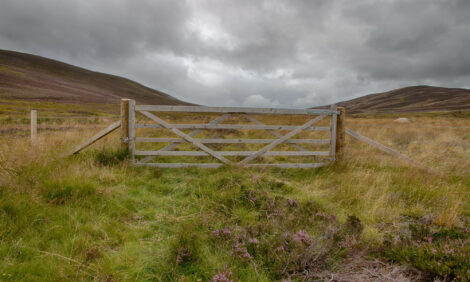



UK farm group pushes for pork supply chain review
The association has eight key asksThe Uk's National Pig Association is urging Defra to push forward without delay with its review of the pork supply chain, to help deliver lasting reform and a fairer trading environment for struggling pig producers, according to a press release from the association.
After two years that have seen one crisis follow another and pig production losses estimated at £750 million while other parts of the chain post handsome profits, the NPA has stressed that things cannot continue as they are.
More than 350 responses were submitted to Defra’s consultation on contractual practice in the pig supply chain last autumn, most of which were producers. “This not only gave Defra a very robust mandate, but also a comprehensive body of evidence to be able to make real progress on the outcomes we so desperately need,” said NPA chief executive Lizzie Wilson.
The review has the potential, ultimately, to bring about clearer and more certain contractual relations within the chain, underpinned by new legislation.
Farming Minister Mark Spencer has suggested that Defra’s response to the pork consultation is due to be published ‘very soon’, but the NPA has insisted that this must be just the start of a reform process that Defra commits to fully.
Defra initiated a review of the dairy sector in 2020, with the aim being to introduce legislation this year, although this is still in progress.
“The UK pig sector does not have that sort of time and we hope the lessons learned by the dairy sector will help us in this process,” Wilson said.
“We lost an estimated 15% of the national breeding sow herd in the 12 months to June 2022, and, although there are now signs of a return to profitability, the independent pig sector remains in an extremely fragile state," she added.
“Whilst we appreciate this is not going to happen overnight and any policy must be fit for purpose, producers need confidence to continue production," Wilson said. "We need the risk to be more proportionately spread through the supply chain, and that will only come with far-reaching reforms.”
The NPA made eight key asks in its response to Defra’s consultation last autumn, setting out a blueprint for a fairer, more transparent and, ultimately, more sustainable pork supply chain.
Key asks include the introduction of legislation to underpin new pig contracts, which would allow producers, marketing groups and pork processors to negotiate terms that work for all parties, including ensuring a fair price for producers, and backed by an effective dispute resolution mechanism.
The NPA is also calling for better forecasting to improve business planning, as part of a wider drive to increase transparency across the chain, and for pork buyers to make better use of the entire pig carcase, rather than just selective cuts.
“We have moved from a situation where processors did not have the capacity to take the number of pigs available, causing horrendous backlogs on farm, to one where we now have a shortage of British pigs," said NPA chief policy adviser Rebecca Veale.
“Pig prices are now rising as a result, but this degree of volatility is in nobody’s interests, which is why we want to see a more balanced trading environment, better forecasting and for buyers to take a longer-term perspective," she added.
“The initial consultation focused very much on the processor-producer relationship, but our message to Defra all along has been that any solution to this imbalance of power must include the retailers, who set the tone for the rest of the chain," Veale said.
“We know that Defra has a lot on its plate at the moment, but this piece of work must remain a priority and continue to be driven forward at all opportunities," she concluded. "It is in everybody’s interests to bring about a fairer, more sustainable pork supply chain to help ensure continued domestic supply.”







